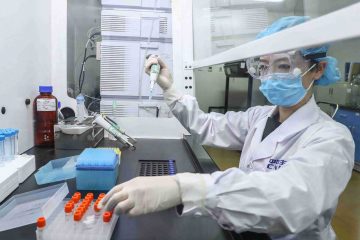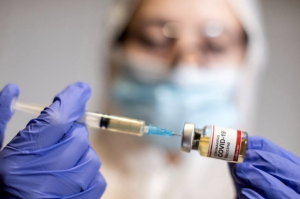
As evident in today’s surge of dismaying news headlines, the COVID-19 pandemic has immensely impinged on the lives of many and people have been yearning for a vaccine to supply preventive measures against the novel-coronavirus. Here is a brief outlook into some of the most probable COVID-19 vaccines and the distinctive technologies and methods in which are employed and associated with each one under each subcategory of vaccine variant.
mRNA Vaccines: Involves the employment of a genetic material messenger RNA which helps to notify cells to produce duplicates of the coronavirus spike protein to assimilate the immune system to its emergence.
1. Moderna
Moderna’s vaccine places great reliance on messenger ribonucleic acid genetic material mRNA – 1273, where the material codes for a paramount subdivision of a viral immune protein and supplies a patient’s immune system enough time to produce impenetrable antibodies that will be effective in fighting the virus. It was later announced that none of the infected patient majority of whom received the vaccine developed dire instances of COVID19, while 12% of the infected patients who were provided with a placebo vaccine did.
2. Pfizer
Pfizer is currently collaborating with the German pharmaceutical company “BioNTech” to produce possible COVID19 vaccines, and comparable to the proceedings of Moderna, officials at Pfizer recommend 2 doses of the vaccine per person, however, insists on doses to be injected into both arms to provide extended durations of immunity. Pfizer’s vaccine produced only benign to moderate side effects on injected participants that persisted for only one or two days following the time of the vaccination, including mild symptoms of fevers, chills, fatigues, and no other critical indicators.
Vector Vaccines: Involves the usage of different respirator disease-prompting viruses to instruct cells to produce spike proteins through the injection of instructional DNA.
1. AstraZeneca
Created by a team of researchers at Oxford University, AstraZeneca’s most recent vaccine candidate is a vector vaccine that comprises a virus fragment of the common cold called an adenovirus. The company has professed that the vaccine will be able to endure typical household refrigerator temperatures for up to six months and has recently been poised for its availability, easy accessibility, and moderate pricing and has vowed to expand its regions of vaccine distribution.
2. Johnson & Johnson – Janssen
Janssen, a pharmaceutical company currently under the possession of Johnson & Johnson also utilizes the adenovirus approach. Adenovirus 26 vaccines have been put into action in the past for Janssen’s Ebola vaccine, which came out ahead of marketing authorization from the European Commission in July 2020.
3. Sputnik V
Sputnik V is a Russian pharmaceutical company working towards producing an adenoviral vector vaccine. Similar to the practices of AstraZeneca and Janssen, Sputnik V makes use of adenoviruses but instead uses two disparate variants of the common cold virus – adenovirus 5 and adenovirus 26.

Protein Subunit Vaccines: Insect viruses are utilized to infect other insects; whose cells produce spike proteins to be amassed then manufactured into vaccines that are safe for use.
1. Novavax
Maryland-based biotech Novavax has produced a protein subunit vaccine that utilizes a disease-inducing insect virus called the baculovirus. Each candidate was given two doses of the vaccine, and five out of the 106 participants that weren’t given the vaccine experienced severe side effects such as acute nausea, muscle and joint pains, and fevers.
2. Sanofi and GlaxoSmithKline
Pharmaceutical companies Sanofi and GlaxoSmithKline (GSK) have both contributed to the making of a singular collaborative vaccine candidate, by which Sanofi has implemented its FluBlok technology from previous projects and GSK has willingly supplied the project with its adjuvant or cancer tumor suppressant proposition. Similar to Novavax, Sanofi and GSK’s vaccine is of the protein subunit variant, where the vaccine strongly relies on baculoviruses for the multiplication of spike proteins.
Whole, Killed Vaccines: Coronaviruses are grown in large batches, killed through the means of heated chemicals, executed into usable vaccines, and then finally injected to engender immune responses.
1. Sinovac and Sinopharm
Chinese pharmaceutical manufacturer Sinovac’s most promising COVID-19 vaccine candidate, “CoronaVac” and Sinopharm, otherwise known as China National Pharmaceutical Group Corporations, practice the usage of an inactivated virus, or a virus that is temporarily inoperative and apt to engendering infections in the human body. According to both companies, large assemblages of coronaviruses are propagated in labs, purified, and ultimately fabricated into usable vaccines.
Akimi L., an AISG sophomore expressed her aversion to COVID19 vaccines that are still going under evaluative processes, as well others such as Pfizer and Moderna’s vaccines that have recently been authorized by the FDA. She professed that even if such approved vaccines became available in Guangzhou hospitals, she would still refuse to take it, as she believed that COVID19 cases have abated significantly in Guangzhou to the point where preventive measures are no longer requisite.
Gyuri K., an AISG freshman had contrastive viewpoints that contradicted to the points made by Akimi, as she stated that she would most likely be inclined to getting the vaccine once it becomes available in Guangzhou. “COVID19 cases are rising in Asia once again, and I believe that everyone should be preparing for another possible surge in China by getting a preventive vaccine.”
The US Food and Drug Administration (FDA) has recently granted a historic emergency authorization for Pfizer and BioNTech’s COVID-19 vaccine. The vaccine has been first approved for medical usage in the United States, following Canada and the UK.
The proposed decision of authorizing the use of this vaccine has been inaugurated, primarily targeted towards individuals of 16 and older in age, however, the FDA has expressed its suggestion for health institutions to forbid the prescription of Pfizer/ BioNTech’s vaccines for individuals possessing past occurrences of extreme allergic reactions. In addition, the FDA has asserted that the vaccine should be apportioned first to those that are most predisposed to COVID-19 including health care providers and medical staff residents.